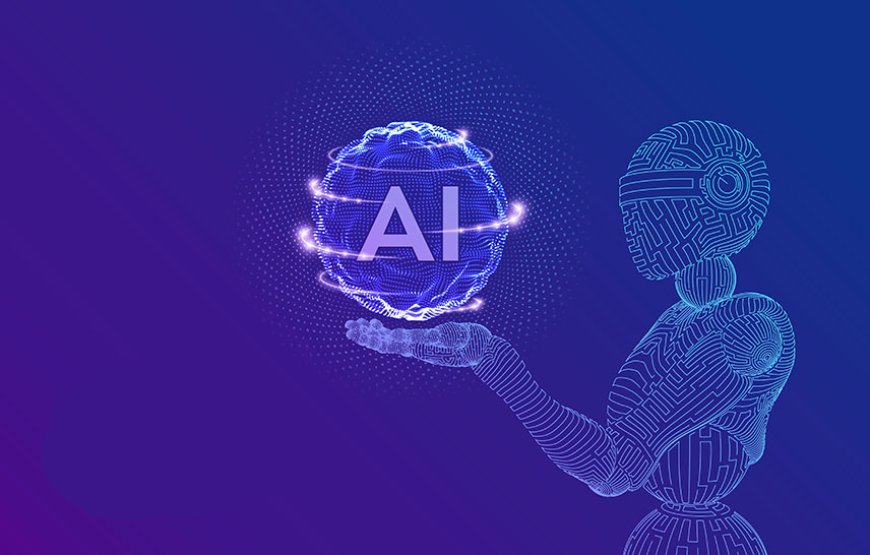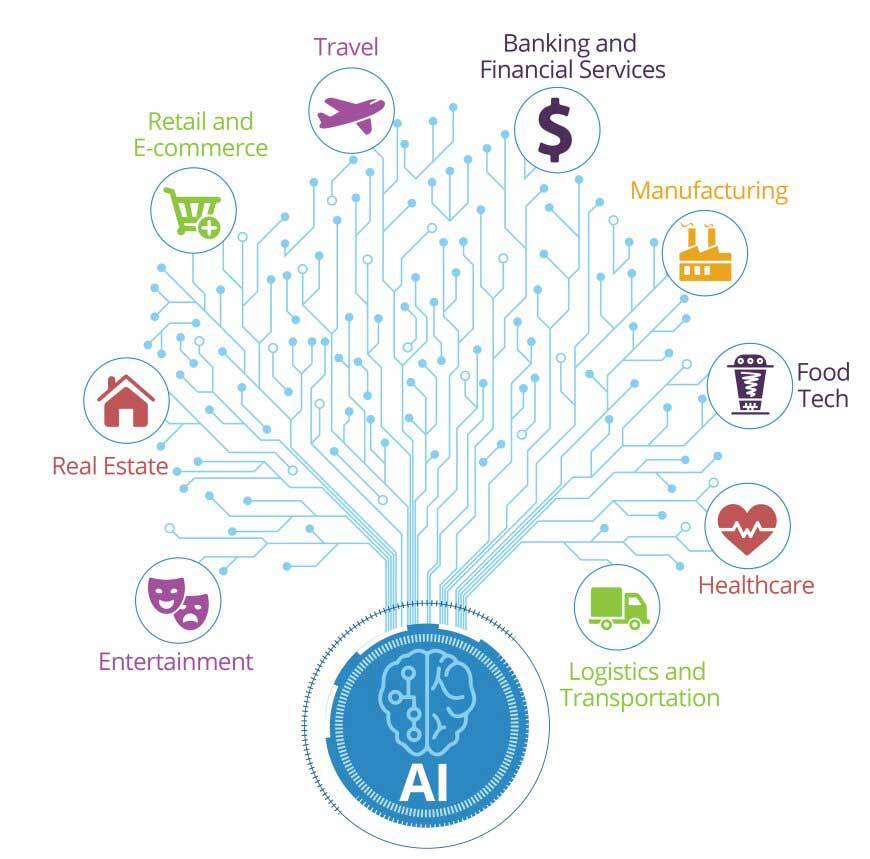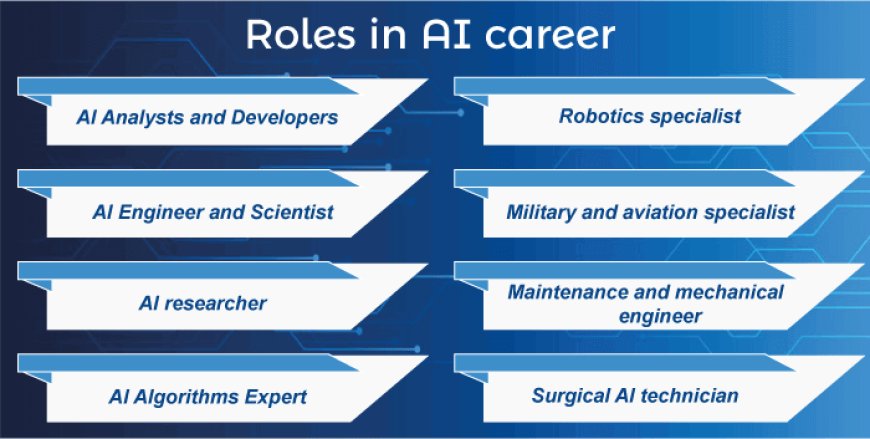Artificial Intelligence (AI), a term that was once exclusive to the realm of science fiction, is now a significant part of our everyday lives. With its unparalleled ability to analyze data, identify patterns, and generate solutions, AI has revolutionized everything from business operations to personal digital assistance. But what exactly is Artificial Intelligence? And more importantly, how can you capitalize on the opportunities it presents? Let's delve into the world of AI and unearth its complexities, potential, and the skills you need to master it.

Table of Contents
- Understanding Artificial Intelligence
- How Does AI Work?
- AI Subfields
- Applications of Artificial Intelligence
- Essential Skills for a Career in AI
- Career Opportunities in AI
- Final Thoughts
1. Understanding Artificial Intelligence
AI, at its core, is a branch of computer science that enables machines to mimic human intelligence. This involves learning from experience, adjusting to new inputs, and performing human-like tasks. From Siri on your iPhone to self-driving cars, AI is powering a variety of technologies and systems that enrich our lives and streamline our everyday tasks.
2. How Does AI Work?
AI operates using machine learning and deep learning, two of its critical components.
-
Machine Learning (ML): This technique uses statistical methods to enable machines to improve with experience. For example, recommendation systems on Amazon or Netflix use ML to suggest products or shows based on your past activities.
-
Deep Learning (DL): DL uses neural networks with multiple layers (hence the term 'deep') for even more complex data analysis. These layers operate like the human brain's neural network, deciphering information from numerous inputs and producing an output after processing it all .

3. AI Subfields
There are several specialized subfields within AI:
-
Natural Language Processing (NLP): NLP allows machines to understand and interact in human language. NLP powers Siri, Alexa, and Google Assistant.
-
Robotics: AI in robotics enables machines to interact with the physical world, performing complex tasks with precision and efficiency.
-
Computer Vision: This field allows machines to interpret and understand visual data from the surrounding world, enabling technology like facial recognition systems.
4. Applications of Artificial Intelligence
AI has a wide range of applications, from personal to professional. Here are a few examples:
-
Personal Digital Assistants: Devices like Amazon Echo, Google Home, and Apple's Siri use AI to understand and respond to user commands.
-
Autonomous Vehicles: Companies like Tesla use AI to operate self-driving cars, improving safety and convenience on the roads.
-
Healthcare: AI is used for disease diagnosis, drug discovery, patient monitoring, and much more, drastically improving the quality and efficiency of healthcare.
-
Finance: AI helps in fraud detection, investment analysis, and customer service in the banking and finance sector.

5. Essential Skills for a Career in AI
Interested in a career in AI? Here are some key skills you should develop:
-
Programming: Languages like Python, R, and Java are crucial for developing AI applications.
-
Statistics and Probability: AI requires a strong understanding of algorithms, distributions, and statistical theory.
-
Data Modeling and Evaluation: To create an effective AI model, you'll need to understand how to evaluate its performance and make improvements.
-
Machine Learning Algorithms: Familiarity with ML algorithms, such as linear regression and decision trees, is essential for AI work.
-
Software Engineering and System Design: Understanding how to design software systems helps in deploying AI applications effectively.
6. Career Opportunities in AI
With the growing adoption of AI across industries, a plethora of career opportunities have emerged. Here are a few roles that are in high demand:
-
AI Specialist: AI specialists develop, deploy, and maintain AI systems.
-
Data Scientist: They interpret complex digital data to help businesses make decisions.
-
Machine Learning Engineer: These professionals develop systems and machines using ML technology.
-
AI Ethicist: As the AI field grows, so does the need for professionals to ensure that AI systems are developed and used ethically.

Domains Of Artificial Intelligence
Artificial intelligence (AI) encompasses a diverse range of domains, each with its unique applications and challenges. Some prominent domains of AI include natural language processing (NLP), computer vision, robotics, expert systems, and machine learning.
NLP focuses on enabling computers to understand, interpret, and generate human language. It involves tasks such as speech recognition, sentiment analysis, and language translation, making it vital for applications like virtual assistants and chatbots.
Computer vision aims to give machines the ability to perceive and interpret visual information from images or videos. It encompasses tasks like object recognition, image classification, and facial recognition, enabling applications like self-driving cars, surveillance systems, and medical image analysis.
Robotics combines AI with physical systems to create intelligent machines that can interact with the physical world. This domain includes areas like autonomous drones, industrial automation, and humanoid robots, with applications in manufacturing, healthcare, and exploration.
Expert systems focus on capturing and applying human expertise in specific domains. These systems use rule-based reasoning to mimic human decision-making processes, making them useful in areas such as diagnosis, planning, and knowledge management.
Machine learning is a core domain of AI, encompassing algorithms and techniques that enable computers to learn from data and improve performance without being explicitly programmed. It includes supervised learning, unsupervised learning, and reinforcement learning, driving applications like predictive analytics, recommendation systems, and fraud detection.
Is Coding Required For Artificial Intelligence As Paragraph
Yes, coding is a fundamental requirement for working with artificial intelligence (AI). AI involves developing intelligent systems that can perform tasks autonomously, and coding is the means through which we instruct and train these systems.
To effectively work with AI, you need to be proficient in programming languages such as Python, Java, or C++, among others. These languages provide the necessary tools and libraries for implementing AI algorithms, building neural networks, and processing large datasets.
Coding skills enable you to develop AI models and algorithms, preprocess and transform data, and fine-tune parameters for optimal performance. You can write code to train machine learning models, implement deep learning architectures, or design algorithms for natural language processing and computer vision.
Moreover, coding is essential for debugging, testing, and refining AI systems. It allows you to analyze and modify the code to improve the performance, accuracy, or efficiency of the AI models.
Furthermore, coding skills enable you to integrate AI solutions into existing software systems, deploy models on different platforms, and handle data pipelines or real-time data streams.
While some AI tasks can be accomplished using pre-existing libraries or visual tools, having coding skills empowers you to delve deeper into the algorithms, customize models, and develop innovative AI solutions that go beyond the limitations of off-the-shelf solutions.
Scope Of Artificial Intelligence:
The scope of artificial intelligence (AI) is vast and continues to expand rapidly. AI has the potential to revolutionize various industries and sectors, including healthcare, finance, transportation, education, and more. It encompasses domains such as natural language processing, computer vision, robotics, expert systems, and machine learning.
AI-powered technologies can automate routine tasks, optimize processes, and improve efficiency. They can analyze vast amounts of data to uncover patterns and trends, enabling data-driven decision-making. AI also has the potential to enhance customer experiences through personalized recommendations, chatbots, and virtual assistants.
In healthcare, AI can assist in diagnostics, drug discovery, and patient monitoring, leading to improved outcomes and precision medicine. In finance, AI algorithms can identify fraudulent transactions, perform risk assessments, and automate trading processes. In transportation, AI can power self-driving cars and optimize route planning, reducing accidents and congestion.
As AI continues to advance, the scope of its applications expands. It holds the promise of addressing complex societal challenges, such as climate change, by analyzing large environmental datasets and developing sustainable solutions. The integration of AI with other emerging technologies, such as Internet of Things (IoT) and blockchain, further extends its scope and potential.
Overall, the scope of artificial intelligence is vast and multi-dimensional, with potential applications in numerous domains. It presents opportunities for innovation, automation, and improved decision-making, shaping the future of industries and transforming the way we live and work.
Crafting Your AI Resume
Crafting an AI-ready resume requires careful consideration of the skills and experiences that showcase your expertise in artificial intelligence. Start by highlighting your proficiency in programming languages commonly used in AI, such as Python, R, or Java. Emphasize your experience with machine learning algorithms, deep learning frameworks, and data manipulation libraries.
Include relevant projects that demonstrate your ability to apply AI techniques to solve real-world problems. Describe the datasets you worked with, the models you developed, and the outcomes achieved. Highlight any publications, research papers, or contributions to the AI community to showcase your commitment to staying updated and making meaningful contributions to the field.
Additionally, mention any experience with big data technologies, cloud platforms, or distributed computing frameworks, as these skills are highly valued in AI. Showcase your expertise in data preprocessing, feature engineering, and model evaluation techniques.
Highlight your ability to work with unstructured data, such as natural language processing or computer vision, if applicable to your background. Mention any experience in developing chatbots, image recognition systems, or recommendation engines to demonstrate your proficiency in specific AI domains.
Demonstrate your problem-solving abilities, critical thinking skills, and adaptability by showcasing projects where you tackled complex challenges, optimized models, or developed innovative AI solutions.
Lastly, include any relevant certifications, online courses, or workshops you have completed to demonstrate your commitment to continuous learning and staying updated with the latest advancements in AI.
How To Find An Artificial Intelligence Job
Finding an artificial intelligence job requires a strategic approach. Start by building a strong foundation in AI through education and practical experience. Complete relevant courses, certifications, or degree programs to gain knowledge and expertise in AI concepts, algorithms, and tools.
Next, build a portfolio of AI projects to showcase your skills. Develop projects that demonstrate your ability to solve real-world problems using AI techniques and showcase your understanding of different AI domains, such as machine learning, natural language processing, or computer vision.
Network within the AI community by attending industry events, conferences, or meetups. Engage in discussions, connect with professionals, and seek mentorship opportunities. Networking can lead to valuable connections and job opportunities in the field.
Utilize online platforms and job boards specifically focused on AI and machine learning roles. Platforms like LinkedIn, Indeed, and specialized AI job boards can provide access to a wide range of AI job opportunities. Set up job alerts and regularly search for relevant positions that match your skills and interests.
Stay updated with the latest advancements in AI by following industry publications, research papers, and AI-focused blogs. This knowledge will not only help you in interviews but also demonstrate your passion and dedication to the field.
Tailor your resume and cover letter to highlight your AI skills and experiences. Customize them for each job application, emphasizing the specific requirements and qualifications mentioned in the job description.
Syllabus For An Artificial Intelligence (AI) Course
The syllabus for an artificial intelligence (AI) course typically covers a range of fundamental concepts and advanced topics. The course often begins with an introduction to AI, covering its history, goals, and different AI approaches. It then delves into topics such as problem-solving using search algorithms, knowledge representation and reasoning, logic and inference, and planning.
The syllabus may also include machine learning, covering different types of algorithms such as supervised learning, unsupervised learning, and reinforcement learning. Deep learning, a subfield of machine learning, may be covered as well, including neural networks, convolutional neural networks (CNNs), and recurrent neural networks (RNNs).
Natural language processing (NLP) is another key topic in AI syllabi, focusing on techniques for understanding and processing human language. This may include topics like sentiment analysis, named entity recognition, and machine translation.
Additionally, the syllabus may include computer vision, which covers image and video understanding, object detection, and image classification techniques. Other topics may include robotics, swarm intelligence, genetic algorithms, and expert systems.
Ethical considerations, societal impact, and the future of AI are also becoming increasingly important aspects of AI syllabus.
As we continue to advance technologically, the role of AI in our lives and businesses will only become more substantial. Now is the perfect time to delve into the world of AI, whether you're looking to understand how your digital assistant works, develop a new career, or simply stay up-to-date on technology trends. The future of AI is bright, and the opportunities are boundless.I hope this comprehensive guide to Artificial Intelligence has helped clarify what AI is, how it works, and the incredible opportunities it offers. With the right knowledge and skills, anyone can contribute to this exciting field and help shape our AI-powered future.The potential of AI is practically limitless, and it's up to us to harness it responsibly.Remember, every AI journey begins with a single step. Whether you're an entrepreneur looking to integrate AI into your business, a student contemplating a career in this revolutionary field, or just a curious mind eager to understand the world better, this guide is a stepping stone on your AI journey. Keep exploring, keep learning, and most importantly, keep innovating. The future is in your hands.











































